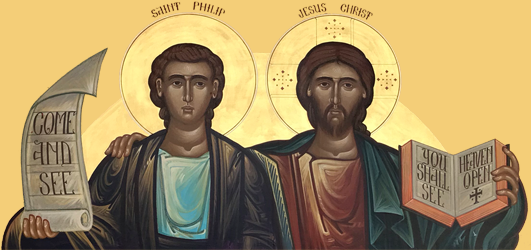Leviticus 12:6
“When the days of her purification are fulfilled, whether for a son or a daughter, she is to bring to the priest a lamb of the first year as a whole burnt offering, and a young pigeon or a turtledove as a sin offering, to the door of the tabernacle of testimony.’” (OSB)
Chapters 11-15 of the Book of Leviticus have been called the “Purity Code” since they address the various states and conditions that create ritual impurity that must be cleansed, either by a “Sin Offering” or some form of washing or both, before the Israelite can once again be in full communion with God: Ch. 11, “clean & unclean” animals; Ch. 12, “childbirth”; Ch. 13-14, “leprosy”; Ch. 15, “bodily discharges.” And thus we see how the “sin” addressed by the “Sin Offering” has little to do with what we normally think of as sin (i.e., “disobeying God”).
These are no doubt some of the least read passages in Scripture. Indeed, were it not for the fact that St. Paul tells us that all of the Scriptures are profitable for the Church and for our salvation (2 Tim 3:16), we might well wonder why to bother. But then we might recall how many stories of our Lord’s works of healing involve these very matters—various lepers, the woman with the flow of blood, and Jesus’ radical redefinition of Jewish kosher dietary standards (Mk 7:19). Even more so, we might recall that the story of both Mary the Theotokos and the Child Jesus passes through and fulfills this text of Scripture, which we celebrate as the Feast of the Presentation of the Lord in the Temple, and then in type at the churching of every newborn:
Now when the days of their purification according to the law of Moses were completed, they brought Him to Jerusalem to present Him to the Lord (as it is written in the law of the Lord, "Every male who opens the womb shall be called holy to the LORD" [Exod 13:2, 12, 15]), and to offer a sacrifice according to what is said in the law of the Lord, "A pair of turtledoves or two young pigeons (Lev 12:8)." (Lk 2:22-24)
The rationale behind these things (in Lev 11-15) is not explicitly stated in the text, but what seems to be at issue, particularly with Childbearing and Bodily Discharges, is that the loss of bodily fluids was understood to be a form of death. As Leviticus 17:11 says, “the Life of all flesh is its Blood.” To loose blood, to discharge reproductive fluids, is for a mini-death to take place, and that death cannot enter into the presence of, remain with, or coexist with God Who is Life. What we have here, then, in the Priestly text is a recognition of the human situation “east of Eden,” in which the forces of corruption and death are now at work in human bodies, hampering our full communion with God as Life. Humanity’s whole existence—down to the most basic function of propagating the human race—has been distorted, and thus has become the conduit, not of true life, but of a biological life inevitably destined for death.
The Tradition, as recounted in The Great Synaxaristes (Holy Apostles Convent, 2004, pp. 70ff), tells us that, though Mary and Jesus fulfill the Law of purification (by offering a “Sin Offering”), it is not out of necessity because Mary conceived without seed and gave birth without corruption, and Christ assumed human nature perfectly, without corruption and defilement. In Christ, and through the Theotokos, the chain of death is broken. In Christ, humanity is brought back into the Temple, the Garden, Eden; we once again have access to the Tree of Life, which we now contemplate as a symbol of the Cross. It is through Christ’s whole assumption of humanity, destruction of death, and the purification and forgiveness we have in Christ’s once-for-all offering of Himself as a Sin Offering that we, God’s people, the Body of Christ, who are the Temple of God, can be and remain holy vessels, fit to have God dwelling in us. And it is through our continual participation in this offering in the Eucharist and all the Sacraments that we preserve and restore our Baptismal purity until the Last Day, when God will be all in all (1 Cor 15:28).
~ By Reader Justin Gohl

